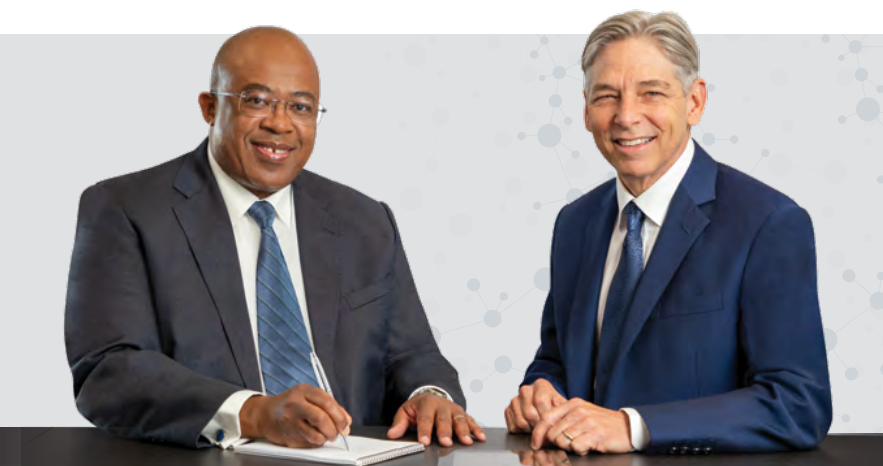
Sasol and its join CEOs, Bongani Nqwababa and Stephen Cornell, will part company as of October 31 following the company’s misjudged investment in a multi-billion dollar gas facility in the US.
The current vice president for chemicals, Fleetwood Grobler, will take on the role of president, CEO and executive director as of November 1. The company had pushed back the publication of its results in order to allow it to focus on internal control problems and carry out a review of work on the Lake Charles Chemicals Project (LCCP).
The joint CEOs will receive no short-term bonus, the statement, said, as will the members of the group executive committee. Furthermore, individuals across Sasol with proximity to LCCP face reduced awards.
There were shortcomings in the leadership of the LCCP team, with conduct that “was inappropriate, demonstrated a lack of competence, and was not transparent”. There was not enough evidence, Sasol’s board said, to “conclude that these individuals acted with an intent to defraud”. Disciplinary action has been taken against one executive vice president, the company said, with “negotiated separation” from Sasol for another three senior vice presidents.
Problems at the LCCP also include a “culture of excess deference”, Sasol continued, although no financial figures on the plant needed to be restated. Furthermore, the company said there was no suggestion that capital expenditure on the facility would be beyond the $12.6-12.9 billion estimate from May. As of the end of September, spending had reached $12.2bn.
While the LCCP cast a long shadow over the company’s results, performance was largely satisfactory. Headline earnings per share were up 12% and cash from operating activities up 20%. Liquid fuel and base chemical sales were up, although performance chemicals slipped.
Sasol said it would cut the final 2019 dividend – the company’s reporting year ends in June – in order to protect its balance sheet. Gearing has reached 56.3%, but debt remains below bank covenants. The company had previously set expectations for gearing of 44-49%.
Sasol took the final investment decision (FID) on its LCCP project in October 2014, predicting total costs would be $8.9 billion. As of August 2016, projected costs had risen to $11bn. Problems cited at that point included land conditions and contractor costs.
The LCCP has a 1.5 million tonne per year ethane cracker and six downstream chemical units.
Early this year, the now-CEO Grobler was appointed to oversee the US cracker project taking over from Stephan Schoeman, who retired. At this point, Sasol launched a full review of costs and schedule for the plant.
The first derivative unit, linear low density polyethylene, came into beneficial operation in February. As of August, the ethane cracker came into operation with capacity utilisation of the plant at around 50%.
Among the problems identified by Sasol at its LCCP on October 28 include duplication of investment allowances, at $230 million, a $180mn cost to correct certain orders and improvements that had been forecast not being realised, in addition to potential insurance claims, of around $120mn.
Not all the problems were driven by Sasol’s execution, the company did also suffer from tough weather including the 2017 Hurricane Harvey.
Sasol put “too much trust” in the leadership of the team working on the LCCP. The company said it needed to foster a spirit of “empowering challenge and avoiding conformity” and that it intended to promote leaders who have demonstrated the ability to foster transparency and dialogue.
